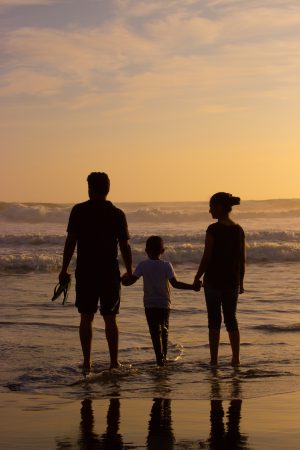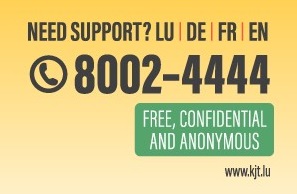Mom, Dad, do you have to take a photo of me again? And post it, too?

When you are on holiday, you are far away from stress, from everyday life – you can relax. Parents and children enjoy beautiful moments together – and of course they want to capture the memory.
A few photos are quickly snapped and, thanks to the technical possibilities, posted directly on social media. Not only young people, but also parents are doing this more and more often.
Parents posting photos/videos of their children is called “sharenting”, a combination of the words share and parenting. The question is whether this is always a good idea.
What parents perceive as a nice holiday memory, the child may eventually find embarrassing. Mockery and bullying by (future) classmates can also be consequences.
A recommendation to parents is to put themselves in the child’s place before posting pictures and videos and to think about the future. Because once a photo or a video is on the internet, they can be shared, saved, copied and misused for other purposes. You no longer have control over what can happen to them.
Parents should especially refrain from sharing photos that show children naked, in swim suits and in similar situations. Pedocriminals steal this kind of photos, as well as everyday pictures, upload them elsewhere and abuse the photos/videos for their sexual satisfaction. They share them in forums and talk about how they would like to inflict sexual violence on the child.
However, not only such forums, but also YouTube can be abused for this purpose. Pedocriminal users can put everyday pictures of children in a sexual context by cleverly setting the playlist function: through the names of the playlists, through the composition of the videos and through the combination of sexualised adjectives and inconspicuous terms about age, height or physical activities, these playlists can then be found via the search function. A safe countermeasure is to configure the preferences in such a way that videos are not distributed indiscriminately, such as by setting that one’s own videos cannot be added to playlists of others.
Parents should therefore put the protection of their children before the desire to share and not post pictures. Here it is good and important for parents to protect the family’s privacy. This automatically means that children learn from their parents how to handle pictures carefully and to later do the same with their own photos. This decision-making aid can support parents in assessing whether a picture/video should be posted or not (available in German only).
Anyone who wants to post on social networks should always check the privacy and security settings. Another sensible measure is to restrict the target groups of albums and photos.
Do you have questions about this topic? Do you need support on how to have such a conversation with your children?
Don’t hesitate to call the BEE SECURE Helpline (8002 1234), available Monday to Friday (except public holidays) from 9am to 4pm.
For general questions about being a parent, raising children and living together as a family, you can also contact the Online Help.



